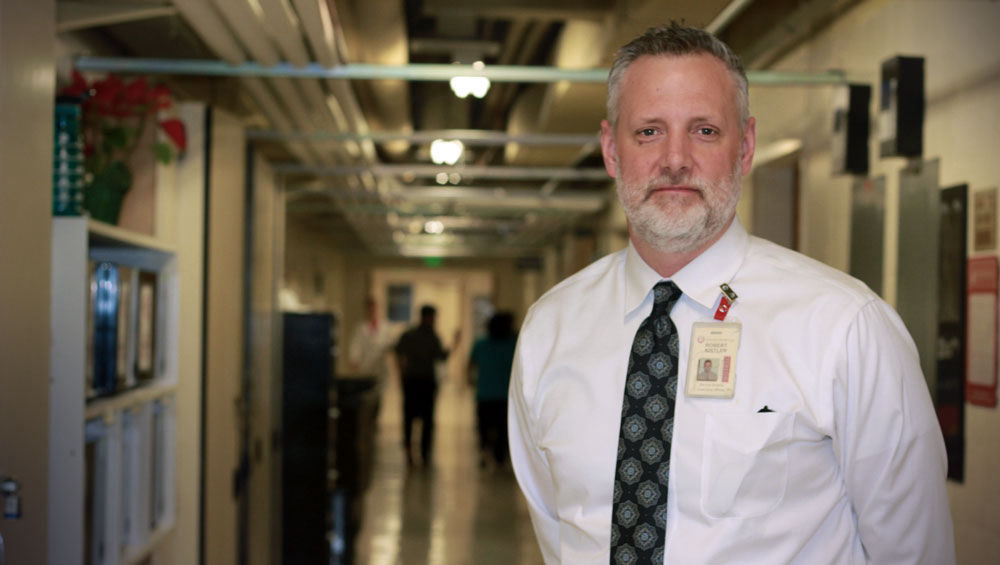#1 Trust people to make good decisions
a young manager, I had to learn how to delegate. I thought that if I didn’t do it, it wouldn’t be done correctly. I did that for a long time and never could understand why I was unhappy in my job. That was more about my weakness than anything. When I was able to let go of my fear that if I didn’t do it myself, it wouldn’t be done right, the path (to success) opened up. I started telling people, “I trust you to make good decisions.” And low and behold they did make good decisions and did so over and over again. I realized, “I don’t need to do my staff’s work. I need to get out of the way and tell them how great they are when they do it really well.” (Learn the evidence behind trust.)
#2 We are surrounded by genius
At some point, I realized that there were really smart people around me, and if I could figure out how to leverage their intelligence we could accomplish great things. I remember when it happened the first time. I was the admitting manager and our department had these never-ending documentation issues. One day an admitting clerk came up with the idea that improved everyone’s work. That was when I realized that if I could think about things differently, maybe my life would improve.
I am always telling my team “I know there is a million dollar idea out there, who has it? Somebody tell me your best idea. If you aren’t willing to say it right now, then I need you to tell me later.” I know I am surrounded by geniuses.
#3 Accountability is how we celebrate achievement
The average person’s definition of accountability has a negative connotation, “If I’m accountable and I don’t do what I’m supposed to do, I’ll get into trouble.” I have turned that around in my mind. I set the target, so that when I achieve my goal, I can be successful. Accountability is the means to celebrate the victory of achievement. We shifted our team’s definition of accountability to “I seek accountability, because I know I will be rewarded.” Reward is a thank you, a handshake, or the self-satisfaction of achievement.
#4 Think human being 101, not management 101
For me it isn’t about management 101, it’s about human being 101. Human being 101 is how we talk to one another with respect and getting along. I want my team to see me as a person first. I work hard to come across as an ordinary guy, because I am one. Your boss can be a hero or a villain; you love them and think they are the greatest, and they aren’t the greatest. Or you hate them and think they are the worst, and they aren’t the worst. They are just a human being doing their best. I want my team to know I’m good at some stuff and I can improve other stuff. The truth is I’ve been doing this a long time, I’ve made a ton of mistakes, had a lot of great mentors and continue to doubt myself at times. The key is to keep going, keep smiling and keep doing your best.
To promote a human perspective, we set up time to talk about things other than work. We do a book club. We all get together, everyone is welcome. We talk about topics like stress and managing difficult people, and make sure that everyone has a chance to give their opinion. Sometimes we disagree. But we learn that we can disagree respectfully and that skill then carries over into our everyday work to foster debate and ultimately innovation.
#5 Measure and share the impact of the work
The enviornmental services team believes in the importance of their work. I reainforce this by telling them that they are important because they keep our hospital clean and safe. We can measure the cleanliness of our hospital. They clean a patient’s room, and the quality team comes in right after using infection control equipment to measure cleanliness. Our department has a 98% cleanliness rate and we are gradually improving.
Trust is important. We know that our custodians are great and ask for their opinions often. We discuss data points in every staff meeting because to be most effective they must understand and connect how we measure the excellence of their work. Custodians are valuable. When we’ve implemented their strategies, our performance has always improved.
* Adapted from The Power of Beliefs in Business: How What We Believe Alters What Happens at Work Every Day , by Ari Weinzweig
*Originally published March 20, 2017
Rob Kistler
We are surrounded by trauma—from patients, to coworkers, to our own experiences. University of Utah Health Madsen family practice leaders share how we recognize and normalize employees’ trauma experiences so they can continue to heal and provide quality care.
Our work has high stakes, and it’s natural we feel a deep sense of responsibility. Ally Tanner teaches us that trust helps lighten the load.
What can 15 years of team-building leadership teach you? A lot. Expressive therapies manager, Holly Badger supervised the Huntsman Mental Health Institute's (formally known as the University Neuropsychiatric Institute) ROPES Course before becoming a manager of UNI's Expressive Therapy program. Here, Holly gives Accelerate a crash course in building community while strengthening a team.
